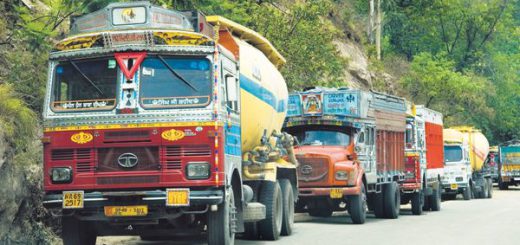Your Complete Guide to Pre-trip Inspection
As every experienced truck driver will appreciate, a truck is not a simple vehicle. It is an office, a source of income, and, above all, a liability. In this regard, performing a complete Pre-trip Inspection is of the utmost importance in terms of safety and efficiency on the wheel.
Importance of Truck Maintenance
Understanding the importance of truck maintenance, first and above all, is to appreciate its impact on road safety. It not only defends the driver but also the other road users. Moreover, timely maintenance reduces instances of unforeseen repairs that tend to be expensive and cause a loss of revenue.
Why Pre-Trip Inspections Matter?
It is crucial to perform a detailed Pre-trip Inspection before embarking on any journey, whether it be a long haul or a short delivery run. These recurrent checks can help you avert serious issues on the road by spotting possible causes in advance. In addition, these evaluations assist you in keeping your truck in good working order and prolonging its durability.
Your Essential Pre-Trip Inspection Checklist
Let’s break down the key components you need to check before starting your journey:
Engine Inspection
First of all, give a Pre-trip Inspection of your engine—it’s the heart of your truck. Specifically, you should:
- Monitor oil levels and ensure they meet manufacturer recommendations
- Listen for unusual noises during the operation
- Look for signs of fluid leaks underneath the truck
- Check belts and hoses for wear or damage
Tire Safety Check
Subsequently, move on to your tires, as they’re your only point of contact with the road. Remember to:
- Verify tire pressure in all tires
- Look for signs of uneven wear patterns
- Check for visible damage such as cuts or bulges
- Ensure all lug nuts are properly tightened
Brake System Evaluation
Moreover, your brake system requires careful attention. In particular, you should:
- Test brake pedal resistance
- Check brake fluid levels
- Inspect brake pads for wear
- Listen for unusual sounds during brake operation
Lighting System Review
Meanwhile, don’t forget about your lighting system. Specifically:
- Test all headlights (both high and low beams)
- Verify that brake lights work properly
- Check turn signals and hazard lights
- Ensure marker lights are functioning
Fluid Level Checks
In addition to engine oil, you should check other vital fluids:
- Coolant levels
- Transmission fluid
- Power steering fluid
- Windshield washer fluid
- Diesel exhaust fluid (DEF) if applicable
Read More:- 5 Ways to Boost Your Logistics Performance
Mirror Adjustments
Furthermore, proper mirror positioning is crucial for safety:
- Clean all mirrors thoroughly
- Adjust for optimal visibility
- Check for cracks or damage
- Ensure secure mounting
Emergency Equipment Verification
Besides regular equipment, always verify your emergency gear:
- First aid kit completeness
- Fire extinguisher presence and charge
- Warning triangles or flares
- Working flashlight with spare batteries
Cargo Security
After that, if you’re hauling cargo:
- Confirm load distribution is even
- Check securing straps or chains
- Verify door seals and locks
- Review weight distribution
Documentation Review
Finally, ensure all necessary paperwork is in order:
- Current driver’s license
- Updated registration
- Insurance documentation
- Required permits
- Updated log books
Best Practices for Thorough Pre-trip Inspection
To make your pre-trip inspection more effective, consider these essential tips:
Use a Systematic Approach
First of all, develop a consistent routine:
- Start at the same point each time
- Move in a logical pattern around the truck
- Use a printed or digital checklist
- Mark off items as you complete them
Take Your Time
Moreover, remember that rushing through a Pre-trip Inspection can lead to missed problems:
- Allow at least 30 minutes for a complete check
- Focus on one component at a time
- Avoid distractions during an inspection
- Document any concerns immediately
Trust Your Senses
Furthermore, use all your senses during the Pre-trip Inspection:
- Look for visible damage or wear
- Listen for unusual sounds
- Feel for loose components
- Notice any unusual smells
- Pay attention to vibrations during the operation
Keep Detailed Records
Additionally, maintaining inspection records is valuable:
- Note dates and times of inspections
- Document any issues found
- Track maintenance patterns
- Keep repair receipts
- Monitor component life cycles
Weather Considerations
Similarly, adjust your Pre-trip Inspection based on weather conditions:
- Check wipers before rainy weather
- Verify heater/defroster operation before winter
- Test AC system before summer
- Inspect tire tread for seasonal conditions
Read More:- What Common Mistakes Should Truck Drivers Avoid?
Making the Most of Your Inspection
Remember that a thorough pre-trip inspection is an investment in your safety and success. Therefore, consider these final points:
Regular Maintenance Scheduling
- Schedule regular maintenance checks
- Keep up with manufacturer recommendations
- Address minor issues before they become major problems
- Build relationships with reliable service providers
Professional Development
- Stay updated on inspection requirements
- Learn about new truck technologies
- Share knowledge with fellow drivers
- Attend safety workshops when possible
Conclusion
To summarize, a thorough Pre-trip Inspection is not merely an issue of compliance with regulations: it is one of the many elements that constitute professional truck driving. This procedure and proper ordering of inspections would prevent many breakdowns and accidents. Do not forget – the time invested in pre-trip inspections has never been wasted, especially for safety and effective work on the road.




Recent Comments